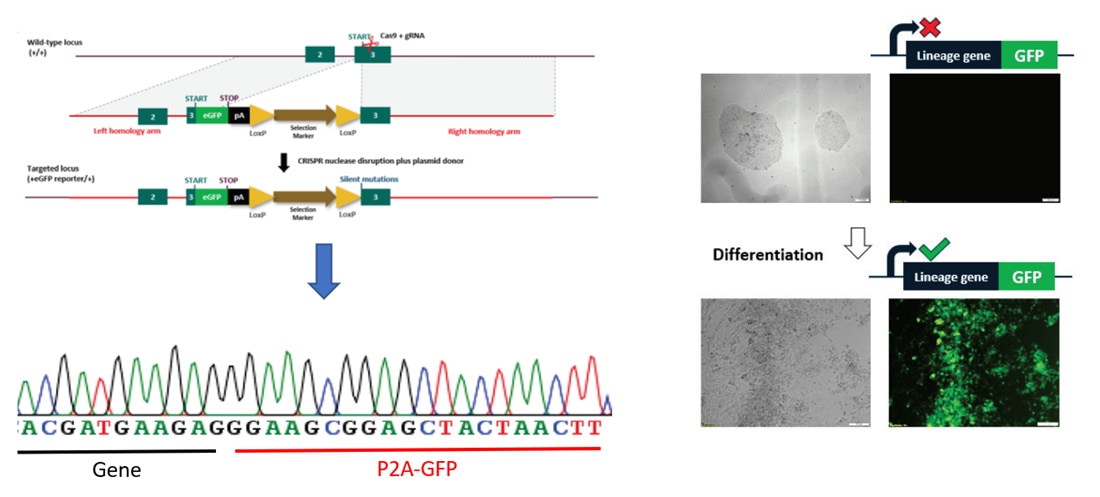Induced pluripotent stem cells (iPSCs) serve as ideal disease models due to their superior biological relevance and isogenic nature, however gene editing in iPSCs can present a unique set of experimental challenges.
Why edit in iPSCs?
Engineered iPSCs often serve as superior models of difficult-to-represent diseases than traditional immortalized cell lines. Researchers edit iPSCs to create isogenic cell models containing key disease-driving mutations to achieve mechanistic understanding, without background genetic variability, of causative relationships between genotype and phenotype.
Essentially, these edited iPSC lines serve as "disease-in-a-dish" models helping researchers to discover novel drug targets with increased predictability of their safety and efficacy.
iPS cell line engineering services
Many labs simply choose to outsource the engineering portion of their research and focus on downstream phenotypic analysis. Trusting your iPS cell line editing work to a dedicated genome engineering CRO can provide significant cost and time savings.
For nearly a decade, Horizon's engineering team has successfully delivered thousands of gene editing projects for major drug discovery, biotech and pharma research. Our vast expertise working with iPSCs provides our partners with confidence that their project with be completed accurately and on time.
We currently offer genome editing services for:
- Knockout (single or multiple)
- Knock-in
- Reporters
Project workflow
Once the project scope and timeline are defined, partners receive regular updates from their dedicated project manager.

Pluripotency guarantee
We know the importance of maintaining pluripotency throughout the entire gene editing process. At Horizon we take careful measures to maintain the pluripotency status of your cells. In addition, Alkaline Phosphatase staining is provided free of charge for all our iPS cell editing projects. If you require extra assurance, we can also provide screening for additional pluripotency markers.

Engineering capabilities
Knockout |
|---|
 |
|
Confirmation of genotype |
Knock-in |
|---|
 |
|
Confirmation of genotype |
Reporter cell lines |
|---|
 |
Order Products
Get started editing iPSCs
We offer expert engineering services and guaranteed CRISPR reagents for gene editing in iPSCs
Edit-R CRISPR knockout
Algorithm designed CRISPR guide RNAs for highly accurate and efficient functional gene knockout
HDR-mediated knock-in
Homology-directed repair (HDR) relies on the presence of a donor template with sufficient homology to the regions flanking the cut site.
CRISPR interference
CRISPR interference (CRISPRi) is a novel method for specific gene knockdown.
CRISPR activation
Up-regulate gene expression with a modified CRISPR system
Self-delivering synthetic Accell siRNA
Guaranteed gene silencing in difficult-to-transfect cells
